- Home
- Vince Flynn
Mitch Rapp 14 - The Survivor Page 3
Mitch Rapp 14 - The Survivor Read online
Page 3
Of course, he was careful to keep the history lesson non-controversial, a light entertainment for his guest as the elevator rose toward the top floor. He didn’t mention that the massive expansion of the organization had been funded with dollars that were supposed to have gone to supply the mujahideen’s resistance to the Soviets. Or the S Wing, a loose confederation of largely retired ISI operatives in charge of liaising with terrorist groups. And he certainly didn’t touch on the fact that the power of the ISI had grown to such proportions that a former Pakistani president had once referred to it as a state within a state.
The elevator doors opened and Gadai led her through a richly appointed hallway that had been cleared for her arrival. Ahmed Taj’s suite was at the far end and Gadai led her through the outer office.
“It’s been a pleasure meeting you,” he said, before opening the ISI director’s door for her. “I hope to see you again soon.”
Kennedy smiled politely before stepping across the threshold. Ahmed Taj immediately rose from his desk and strode toward her with a hand outstretched.
“It’s wonderful as always to see you, Irene. I thank you for making the journey. I trust it wasn’t too tiring.”
“It was nice to get away from the office, Ahmed. I imagine you’re one of the few people who can understand.”
“Indeed,” he said sympathetically and then motioned toward a group of couches set up in front of one of three stone fireplaces. The office was an opulent affair entirely at odds with the modern architecture of the building. At least four times the size of her own, its walls were covered in rich wood paneling. Numerous bookcases were arranged with photos and other memorabilia, but few actual volumes.
“Tea?”
“Yes, thank you.”
Kennedy examined Taj as he poured. The man was a stark contrast to the imposing surroundings, which she knew to be the work of his predecessor. At the Pakistani president’s urging, Parliament had chosen the ISI’s new director not for his ruthlessness or cunning but for his spectacular mediocrity.
Taj’s gift for military supply logistics, as well as his ability to navigate the egos and agendas of his superiors, had allowed him to rise to the rank of air force general. When compared to even his own young assistant, though, Taj came up wanting. His suit was of average quality, he stood barely five six, and his stomach seemed to expand a little more every time she saw him. He had never been an athlete, and his grades had been good, but far from spectacular. Most notable, though, was the fact that whereas Gadai met her eye and spoke in a clear, confident tone, Taj had a tendency to mumble and look at the floor.
At first, she had been surprised when he’d been named and thought that it was perhaps meant as a tacit apology for the Osama bin Laden fiasco. What she’d come to learn, though, was that Taj possessed the one quality that the country’s president needed. He was controllable.
Whether this was a good thing or not was, like everything related to Pakistan, a complicated matter. The ISI was heavily factioned. It wasn’t unusual for one branch to be hunting a particular terrorist group while another funded it. That incohesiveness weakened the organization and benefited the civilian government, but it also contributed to the dangerous chaos Pakistan was descending into.
Mitch Rapp summed up the ISI situation as a simple question of whether organized crime or disorganized crime was preferable. In his words, would she rather deal with the mafia or a bunch of shiv-wielding junkies?
“I’m glad you agreed to come,” Taj said as he finished pouring and took a seat across from her. “I think a face-to-face meeting is better to put this matter behind us.”
“So do I.”
She picked up her cup and took a sip, making it clear that she wasn’t inclined to offer more.
“In our last meeting you made a number of accusations.”
“ ‘Accusations’ seems like a strong word, Ahmed. I would say ‘concerns.’ ”
His dull eyes fell to the coffee table. “Concerns, then. I’m afraid they were largely justified.”
“Indeed?” she said, keeping her expression passive.
“Yes. I’ve been authorized to tell you everything we’ve been able to determine about your man Joseph Rickman.”
She didn’t respond, letting the silence draw out between them until he felt compelled to start speaking again.
“He did not die in the video released on the Internet.”
She let the surprise read on her face, despite knowing that Rickman had met his end like so many before him: at the hands of Mitch Rapp. “I’m sorry, I don’t understand.”
“He was, in fact, transported to Pakistan. Specifically, to Akhtar Durrani’s private compound.”
“The deputy director of your external wing? To what end?”
“His death video was a ruse to ensure that both you and I would stop looking for him. He was transported to General Durrani’s home and held there to give Akhtar time to extract everything Rickman knew about the CIA’s operations.”
“And you’re telling me you had no knowledge of this?” Kennedy said, making it a point to allow a bit of skepticism to creep into her voice.
“None,” Taj said emphatically. “It seems likely that Durrani wanted to use this information to inflate his own power and unseat me as director.”
Of course that is how he would see it. In truth, Durrani had been a thug. Not a stupid man per se, but hardly clever enough to be behind this scheme. No, Rickman had been in charge the entire time. He would have allowed Durrani the illusion of control while he used the man and his organization to carry out his plan of gutting the CIA’s worldwide operations.
“Can I assume you’ll be turning Rickman over to me immediately?”
Taj’s dark skin took on a pallor. “I’m sorry to inform you that he’s dead.”
“As is Durrani,” Kennedy said. “The press release I read said a heart attack.”
“In fact, both appear to have been shot by Durrani’s man Vazir Kassar, who gained access to his compound with an unknown accomplice. Of course, we’ll turn Rickman’s body over to your embassy as soon as we can make arrangements.”
Kennedy brushed her dark hair behind her ear and leaned back into the sofa. Taj’s story explained his forthrightness. The operation against Durrani was highly professional and he had been unable to identify Kassar’s accomplice. He would have no choice but to consider the possibility that the CIA had been involved and that she already knew about Durrani’s plot. Better to confess and place the blame on a dead man than be caught in a lie that could implicate the entire ISI.
“Can I also assume that the men who were killed in Switzerland were ISI assets?”
“Yes,” Taj said, looking increasingly miserable. “Durrani’s men. They were interested in the banker Leo Obrecht, who, as you know, seems to have been deeply involved in what was happening. The one who escaped was Kassar. We are trying to find him but so far have had no luck.”
It was an unlucky streak that would continue. She had Kassar. He’d declined her job offer, opting instead for a new identity, a U.S. passport, and enough money to start a new life.
“What information did Rickman provide Durrani before their deaths? Was there anything beyond what we saw in the video?”
“I’m afraid I have no idea. All the computers were missing from Durrani’s house. I assume taken by Kassar and his man. An exhaustive search of his home turned up nothing of interest. Currently we’re working on his Internet usage, bank accounts, and known associates. Rest assured that we’re doing everything possible to dissect Durrani’s plan and determine whether he passed sensitive information to any of his people. I’m not aware of any additional revelations since their deaths and my assumption is that Rickman’s knowledge was limited to your network in Afghanistan. My hope is that this incident is behind us.”
Kennedy sat quietly on the sofa. Unfortunately his hopes and her own would be dashed. Rickman’s genius and years in the clandestine services had left him with knowledge far b
eyond his theater of operation. And the situation with Sitting Bull suggested that at least some of that knowledge had made its way into the wrong hands.
“I appreciate your forthrightness, Ahmed.”
“We understand the seriousness of this situation and acknowledge the friendship you’ve showed our country. We are entirely to blame for this incident and can only hope you understand that both I and President Chutani are doing everything we can to mitigate the damage.”
She decided to ignore what was undoubtedly meant as an apology, instead changing the subject.
“And Qayem?”
Lieutenant General Abdul Rauf Qayem had ordered an attack on Mitch Rapp that had led to the death of one of Rapp’s men as well as twenty-one Afghan police officers.
“We’re trying to locate him, but it will be difficult. My understanding is that he believes your Mr. Rapp is hunting him and because of that, he has fled to the mountains.”
Taj’s information paralleled her own. Rapp had Commander Abdul Siraj Zahir of the Afghan police looking for the man, but Zahir reported that the general had disappeared into the hinterland and abandoned all electronic communication. Of course, Zahir was a sadistic psychopath who had changed sides in the Afghan conflict more times than anyone could count, so who could say for certain?
“My problem, Ahmed, is that the Afghan police are blaming Mitch for attacking their men without provocation. Can I assume you’ll use your network to set the record straight? The rumors and animosity are making it difficult for my people to do their jobs.”
“Of course. We’ll begin spreading that message immediately.”
She doubted that was true but, at a minimum, his failure to grant her request would be something she could use against the ISI in their future dealings.
“I’d like to make something very clear—” Kennedy started but then fell silent when the door to Taj’s office opened. When she caught a glimpse of the man in the threshold, she immediately rose to her feet.
Taj did the same, but didn’t seem to share her surprise.
“I don’t think we’ve had the pleasure,” President Saad Chutani said, shaking Kennedy’s hand and then indicating toward the sofa. “Please accept my apologies for intruding.”
She lowered herself back into the cushions. “No apologies necessary, Mr. President. I’m honored.”
Chutani was a head taller than his intelligence chief and seemed to dominate the man in every way.
“I don’t have much time, but I wanted to personally reaffirm my confidence in Ahmed.”
“Thank you, Mr. President.”
Chutani slapped him on the back, seemingly unaware that he’d spoken. “Could you excuse us for a moment? I’d like to speak privately with Director Kennedy.”
“Of course, sir.”
They both watched Taj retreat across his own office and close the door. When he was gone, Chutani took a seat across from Kennedy and appraised her. The intensity of his stare was both impressive and unsurprising. He’d been one of the country’s top generals for years before entering politics. Somewhat unusual for Pakistan, he had become president through an election and not a coup. Since then, he’d managed to marginalize the country’s prime minister and Parliament, gathering more and more authority for his office. In many ways, he had become little more than a dictator, but as pro-American a dictator as could be reasonably hoped for in this part of the world.
Kennedy just sat quietly. Some of the most powerful people in the world had tried to stare her down, and she found it was best not to react. Politicians were creatures controlled by passion and it was most effective to quietly absorb that energy without actually giving ground.
“I’d like to extend my personal apologies to you and to ask you to relate that to President Alexander.”
“Of course, sir.”
He smiled. “I’d heard that you’re difficult to ruffle, and it seems those reports are accurate.”
“Sir?”
“I’d like an honest assessment, Director Kennedy. How badly has this hurt our relationship?”
“I know that our secretary of state is going to be visiting Islamabad soon. I think she would be a more appropriate person to ask that question.”
“But you’re here now, so I’m asking you.”
It was a position Kennedy felt uncomfortable in. She wasn’t a politician and had no desire to be one. Having said that, refusing to answer a direct question from the president of Pakistan seemed impolitic.
“First bin Laden, now one of your people kidnaps our top operative in Afghanistan and tortures him for information,” she started, careful to state only the public story. “It’s been a difficult time for U.S.-Pakistan relations. An era that I think we’d all like to bring to a close.”
“It has indeed been difficult. But you forgot to mention your CIA agents brazenly killing our citizens. And that your embassy is shielding Pakistani citizens accused of spying by your Joe Rickman. Also, there are the constant drone attacks. None of this is easy for me. I answer to the people of Pakistan.”
“President Alexander has been clear that our drone program could be significantly scaled back if you think it’s necessary.”
The politician’s smile lost a bit of its gleam. They both knew that he was using America’s drones to destroy fundamentalists targeting his regime and not those threatening the United States. It was another nuance that she’d found Congress impervious to understanding. Insofar as scoring political points went, one dead terrorist was as good as another to them.
“You’re not a naïve woman, Director Kennedy. You understand what I’m dealing with in trying to reinvent Pakistan as a modern country. Taj is very reasonable and more intelligent than you perhaps give him credit for. But many of our enemies aren’t reasonable. Indeed, many of the men working at this very organization aren’t reasonable. Unfortunately, men like Durrani and your Mitch Rapp are valuable in their ability to understand our terrorist enemies and, if necessary, to match their brutality.”
“With all due respect, Mr. President, Mitch has never betrayed me or his country.”
“Then he’s a unique man. The skills he and Durrani possess usually come with ambition. Taj didn’t watch Durrani close enough. It’s a classic mistake, really—to judge others’ rationality based on one’s own. I assure you he won’t make it again.”
“I trust then that Durrani’s replacement will be easier to work with?”
Chutani frowned. “Concessions had to be made. The new man is not as volatile as Durrani, but he’s still very strong. He has to be able to control certain elements within the ISI. Elements that it will take time to eradicate.”
“I’m certain he was an excellent choice, and I look forward to meeting him,” Kennedy said, making sure she sounded sincere.
“Cooperation and stability, Director. That is what will be good for both our countries. Pakistan needs economic growth and education. Those are the only things that will break the influence of the radicals. People with good lives are hesitant to jeopardize them. People who have nothing, on the other hand, are often no better than wild animals.”
She nodded and took a sip of now-lukewarm tea. “I’ll be happy to deliver your message to President Alexander, sir. I know how much he values your friendship and the friendship of your people.”
CHAPTER 4
ISTANBUL
TURKEY
VASILY Zhutov skirted close to the building next to him, ignoring the dim display window full of electronics. The rain was coming down harder, but instead of pulling the umbrella from his briefcase, he just walked faster.
His masters in Moscow had thought he was insane when he’d volunteered to fill an open position in Istanbul. It was technically a demotion, but he needed a break if he was going to stave off the middle-aged heart attack suffered by so many of his colleagues.
Everything in Turkey didn’t revolve around vodka and heavy food, and his new position didn’t rate a car and driver. He’d mapped out this four-kilometer
path home from his office the first week he’d arrived. It wound through an area that closed down by the time he got off and was thus devoid of pedestrians who could slow his pace. In less than a month, he’d lost two kilos and cut the time it took to cover the hilly course by almost two minutes.
He turned left into a cobblestone alleyway and glanced at the numbers counting down on his digital watch. It wasn’t a record speed, but considering the weather and descending darkness, it was respectable.
More important to his health than the weight loss, though, was the fact that he was two thousand kilometers from the Kremlin, where career advancement was a universe unto itself. The job became not so much protecting the interests of Mother Russia as it was protecting one’s own interests. His days had devolved into a blur of questionable political alliances and elaborate plots to destroy his rivals while they hatched similar plots against him.
That was what had driven him into the arms of the Americans. Of course, Russia’s leaders would loudly condemn him as a traitor if they found out, but deep down they knew it was they who had betrayed their country. They who were turning it into a corrupt basket case barely kept afloat by natural resources gouged from the land.
There was no innovation, no plan for the future, no attempt to meaningfully engage the West. Only the occasional flexing of military muscle to stir the people’s nationalism and blind them to the fact that they had no more hope now than they did under the communists.
Zhutov was forced to divert around a van moving across the entrance to a square dominated by an empty playground. He looked through the rain at the rusting equipment and once again considered how it could be used to enhance his daily exercise routine. Would a pull-up be achievable before he was recalled to headquarters? His doctor had urged caution, but at forty-three it seemed in the realm of possibility.

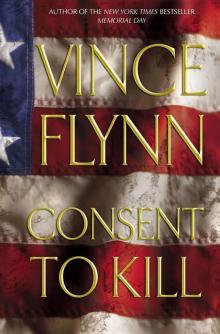 Consent to Kill
Consent to Kill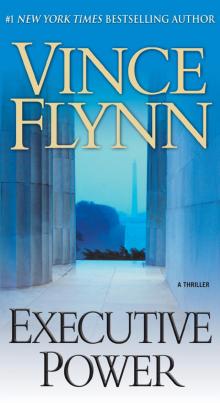 Executive Power
Executive Power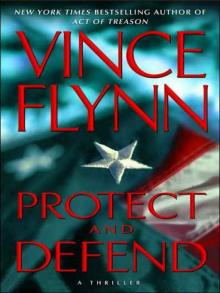 Protect and Defend
Protect and Defend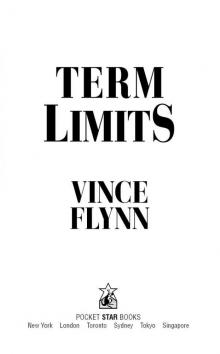 Term Limits
Term Limits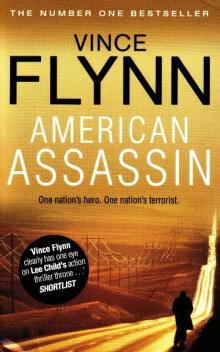 American Assassin
American Assassin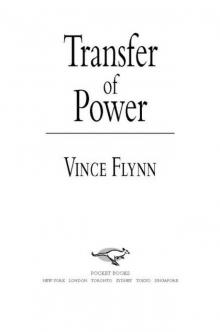 Transfer of Power
Transfer of Power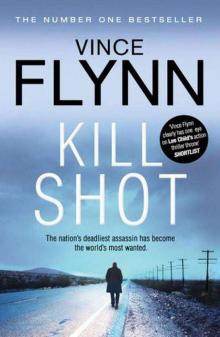 Kill Shot
Kill Shot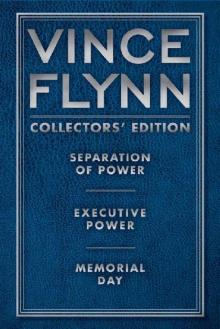 Vince Flynn Collectors' Edition 2
Vince Flynn Collectors' Edition 2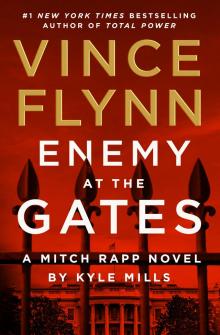 Enemy at the Gates
Enemy at the Gates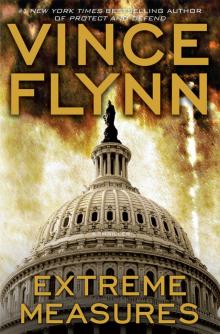 Extreme Measures
Extreme Measures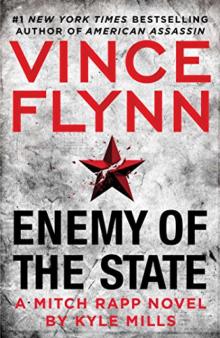 Enemy of the State
Enemy of the State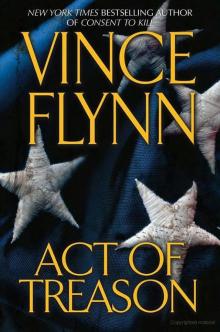 Act of Treason
Act of Treason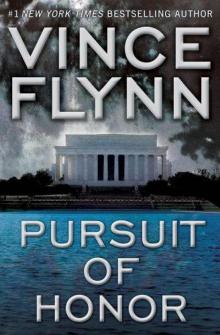 Pursuit of Honor
Pursuit of Honor The Survivor
The Survivor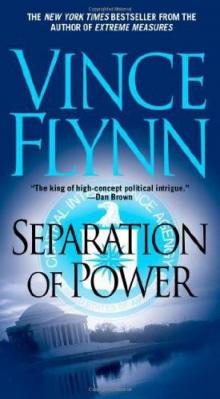 Separation of Power
Separation of Power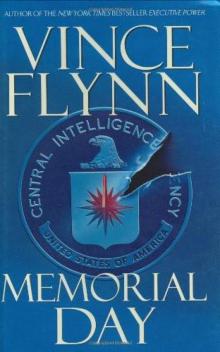 Memorial Day
Memorial Day The Last Man
The Last Man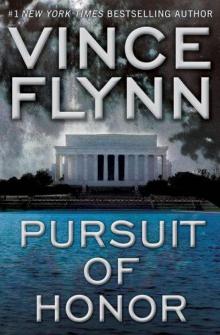 Pursuit of Honor_A Thriller
Pursuit of Honor_A Thriller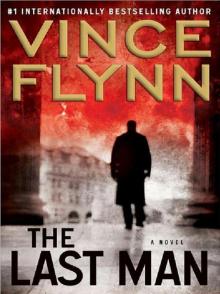 Mitch Rapp 13 - The Last Man
Mitch Rapp 13 - The Last Man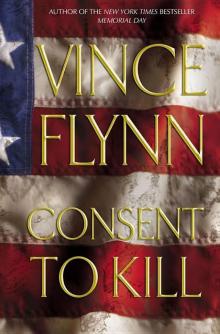 Consent to Kill:
Consent to Kill: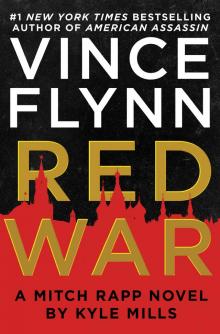 Red War
Red War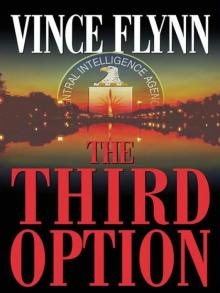 Mitch Rapp 02 - The Third Option
Mitch Rapp 02 - The Third Option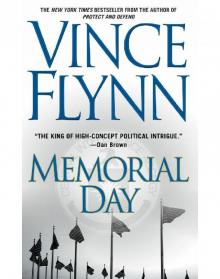 Mitch Rapp 05 - Memorial Day
Mitch Rapp 05 - Memorial Day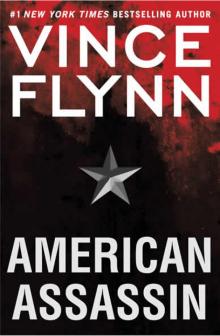 Mitch Rapp 11 - American Assassin
Mitch Rapp 11 - American Assassin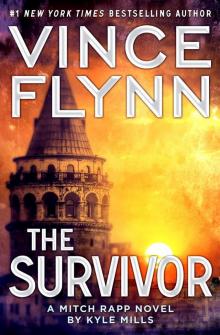 Mitch Rapp 14 - The Survivor
Mitch Rapp 14 - The Survivor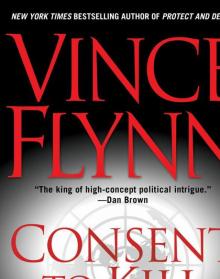 Mitch Rapp 06 - Consent to Kill
Mitch Rapp 06 - Consent to Kill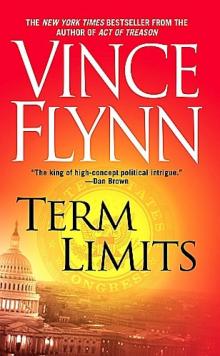 Term Limits mr-1
Term Limits mr-1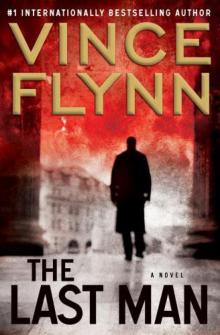 The Last Man mr-13
The Last Man mr-13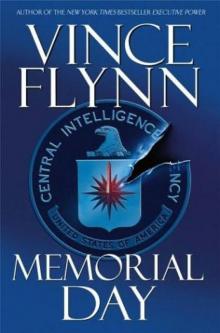 Memorial Day mr-5
Memorial Day mr-5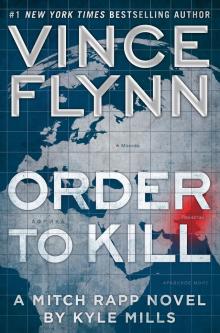 Order to Kill
Order to Kill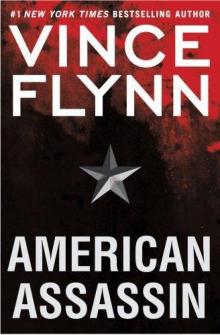 American Assassin: A Thriller
American Assassin: A Thriller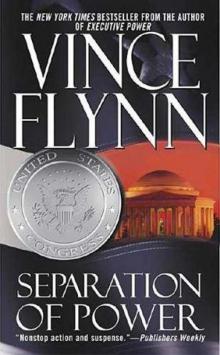 Separation of Power mr-3
Separation of Power mr-3